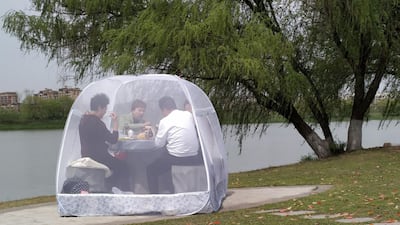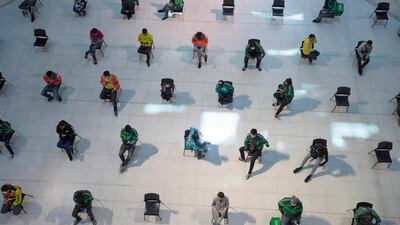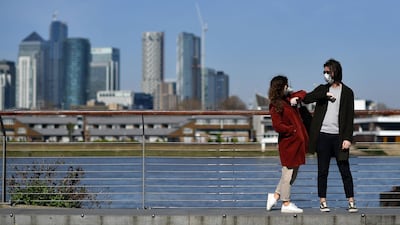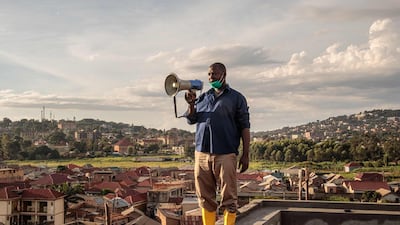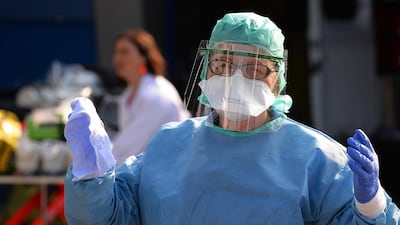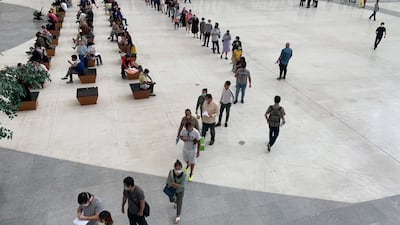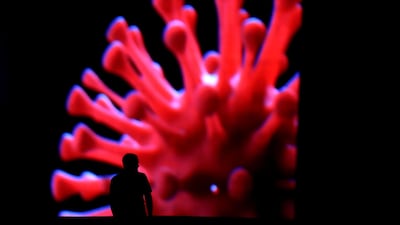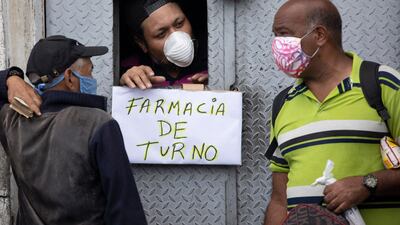Hydroxychloroquine, a medicine for malaria that is being trialled in Jordan, Bahrain and elsewhere to treat the coronavirus, was no more effective than conventional care, a small study in China has found.
The report published by the Journal of Zhejiang University in China showed that patients who got the medicine didn’t fight off the new coronavirus more often than those who did not get the medicine.
The study involved just 30 patients. Of the 15 patients given the malaria drug, 13 tested negative for the coronavirus after a week of treatment. Of the 15 patients who didn’t get hydroxychloroquine, 14 tested negative for the virus.
The results of the study weren’t statistically significant.
Hydroxychloroquine, particularly when given with the antibiotic azithromycin, has received widespread attention following a controversial, small study of about 40 patients hospitalized with Covid-19 in France.
In that study, the drug appeared to help clear the virus from the bodies of 26 patients who were given the medication, based on samples taken from nasal swabs.
Experts have criticized the design of the study, calling it interesting but far from definitive.
Bahrain's Dr Mohammed Al Khalifa, chairman of the national medical team to address coronavirus, said on Tuesday that they have had some success with the treatment in the kingdom. Jordan too has begun trials of the drug to treat Covid-19 caused by the novel coronavirus.
US President Donald Trump has also said several times that he is confident the medicine will work. On Saturday, Vice President Mike Pence also touted the drug at a White House event.
“Doctors can now prescribe chloroquine for that off-label purpose of dealing with the symptoms of coronavirus,” Mr Pence said. “The president’s very optimistic.”
Top scientists, including White House coronavirus task force member Anthony Fauci, have called reports that hydroxychloroquine might work anecdotal, and said they need further study before the pill’s use is encouraged.
It’s already being given to many hospitalized patients in New York, and larger trials are starting — part of a broad effort to find anything that might work against the illness.
In the Chinese study, which was conducted by researchers from the department of infection and immunity at the Shanghai Public Health Clinical Centre, the 15 patients who didn’t get hydroxychloroquine were treated with conventional care.
This includes bed rest, oxygen inhalation, and the use of anti-viral drugs recommended in China’s treatment guidelines like lopinavir and ritonavir, and antibiotics when necessary.
One patient treated with hydroxychloroquine progressed to severe disease during the study. Four patients given the medicine developed diarrhoea and signs of potential liver damage, compared with three getting conventional treatment.
The researchers concluded that additional studies using larger numbers of patients are needed to fully investigate the drug’s risks and benefits.
